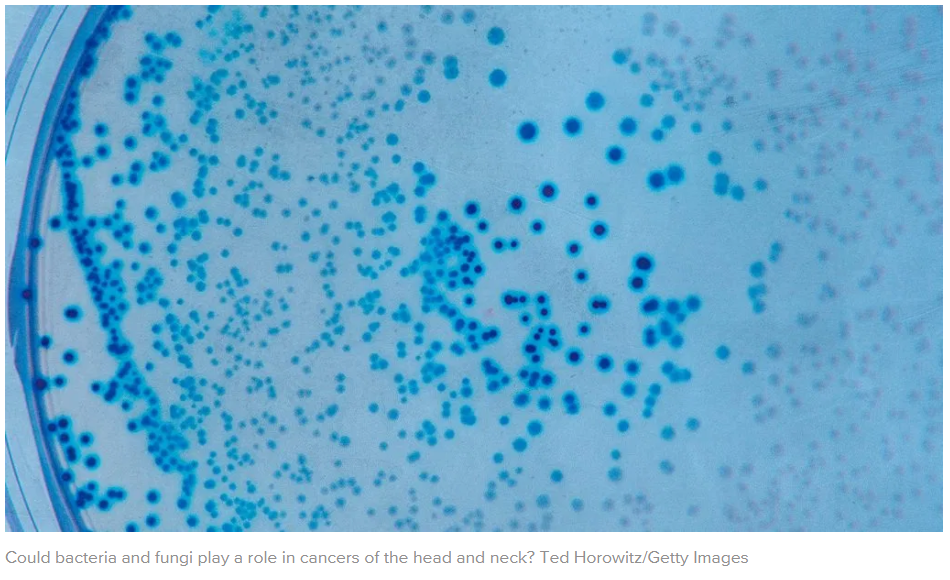Bacteria and fungi might increase risk of head and neck cancers


- A new study investigated a potential role of bacteria and fungi in head and neck cancers.
- In particular, the scientists focused on the actions of metabolites that these microorganisms produce.
- The researchers showed that biofilms formed by fungi and bacteria can activate genes associated with these cancer types.
Head and neck squamous cell carcinoma (HNSCC), which develops in the mucous membranes of the mouth, nose, and throat, is the
Globally, there were approximately 890,000 new cases of HNSCC and 450,000 associated deaths in 2018.
Researchers at São Paulo State University (UNESP) in Araraquara, Brazil, hope that learning more about
The researchers conducted a laboratory study that showed how fungi and bacteria can activate genes associated with head and neck tumors. The study appears in Frontiers in Cellular and Infection Microbiology.
The researchers’ work suggests that the metabolism of biofilms stimulates tumor cells by favoring cell signaling pathways that are required for tumor development. Biofilms occur when bacteria congregate and form a community.
Specifically, the study details how biofilms secrete metabolites, which are the intermediate or end product of metabolism. These metabolites can modify the expression of genes that experts associate with tumor cell growth.
“It was very exciting for us that we found a relationship between the metabolites of these microbes [and cell behavior],” Dr. Paula Aboud Barbugli, a professor at UNESP’s Araraquara Dental School and co-leader of the study, told Medical News Today.
Click the Medical News Today logo to access the rest of the story.





